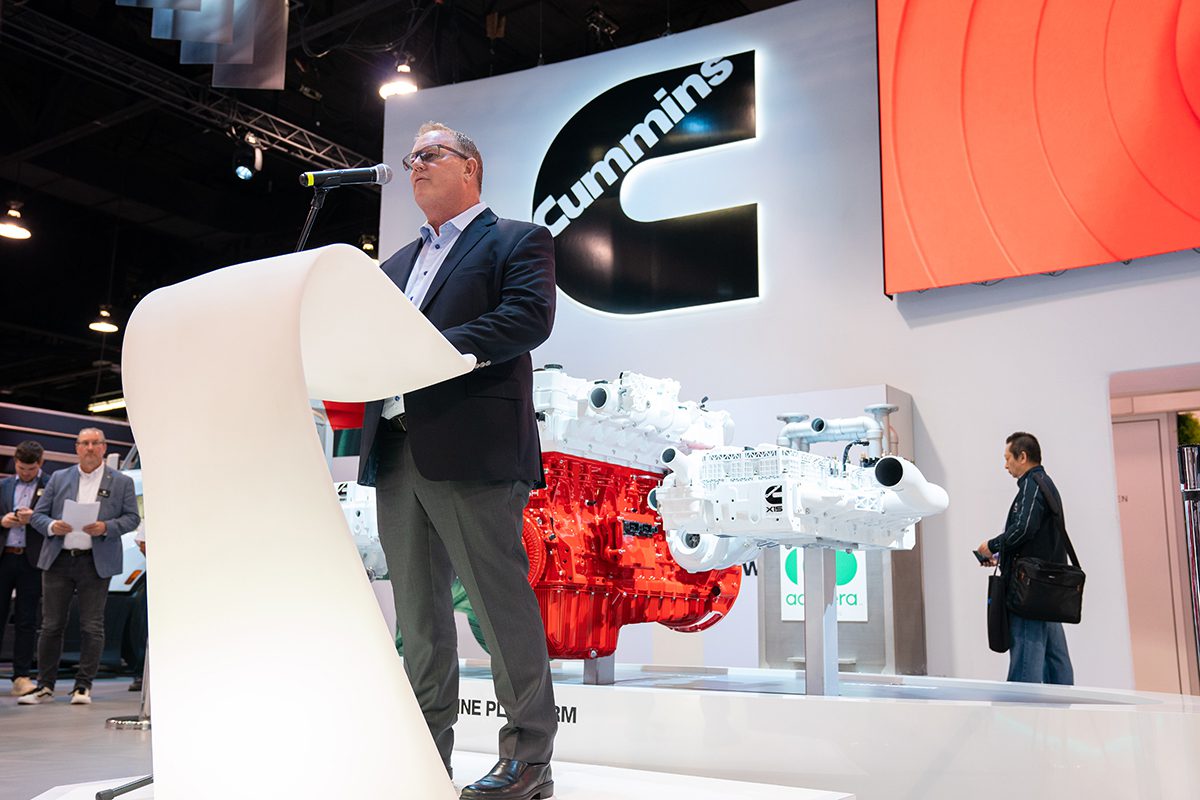The California Natural Gas Vehicle Partnership (CNGVP) collaborated with Cummins Inc. today to showcase the Cummins X15N 15-liter natural gas engine in a Class 8 truck chassis for the first time in North America. The OEM shared insight into its plans to bring the X15N engine to market as well as the news that field testing the engine had begun with key fleet partners.
According to Cummins, fleets will have the opportunity to order factory-built Class 8 trucks with the Cummins X15N 15-liter engine in 2024, as PACCAR announced availability for both its Kenworth and Peterbilt brands. The Cummins X15N engine offers a range of at least 750 miles even when hauling 82,000-pound loads.
“With mounting environmental regulations and a focus on making progress towards corporate sustainability goals, fleet owners are making critical decisions about the future makeup of their fleet,” said Tom Swenson, manager-global regulatory affairs, Cummins Inc. and CNGVP president. “With the growing supply of carbon-negative renewable natural gas in California and the reintroduction of the Alternative Fuel Tax Credit, fleets have an incredible opportunity to reduce both their environmental impact and overall operating costs.”
The announced field testing will study 25 Class 8 trucks upfitted with the X15N engine through September 2023, with demonstrations across a variety of applications, terrains, and locations throughout the country. The results will provide Cummins with real-world operating data that will be used to validate its commercial production plans. California fleets taking part in the field tests include National Ready Mixed Concrete Company, Walmart, Matheson, Food Express, and Sandman.
“Our team is excited to be a part of the Cummins X15N field trials and to have the opportunity to test these natural gas engines in our cement and aggregate hauler fleet,” said Steve Lode, president, National Ready Mixed Concrete. “The utilization of RNG provides the only available fuel source technology to achieve massive reductions in our GHG emissions, an extremely critical objective of our company.”
RNG consumed by vehicles in California had an average carbon intensity of -87.74 gCO2e/MJ in 2022, according to California’s Low Carbon Fuel Standard (LCFS) program data from April 2023. RNG also made up approximately 98% of all natural gas used for transportation fuel in California for the second year in a row during 2022.



